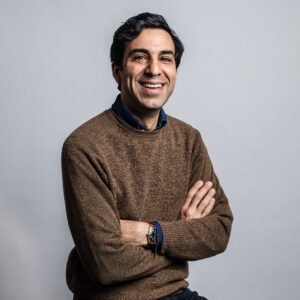The Ocean Alkalinity Cycle and Marine Carbon Dioxide Removal
In order to meet internationally recognized climate targets, rapid, large-scale emissions reductions and an energy transition must be supplemented by carbon dioxide removal. As the largest carbon reservoir on the Earth’s surface, the oceans are being evaluated for their potential to store anthropogenic carbon dioxide (CO2), with most activity to date being driven by the private sector through a large voluntary carbon market.
In this talk, Subhas will discuss some of his group’s recent research into the marine calcium carbonate and alkalinity cycles. He will also introduce the LOC-NESS Project (Locking Ocean Carbon in the NorthEast Shelf and Slope).
Subhas will discuss his team’s evaluations of regional ocean conditions and human activities and how they might interact with ocean alkalinity enhancement (OAE). He will present the results of their 2023 dye tracking experiment, conducted south of Martha’s Vineyard, with implications for the construction of in-water monitoring, reporting, and verification (MRV) frameworks for CO2 uptake into the surface ocean.
He will discuss his team’s engagement efforts and what they have heard from communities who care about the impact of OAE on our regional waters. Finally, Subhas will end with preliminary results from his team’s alkalinity enhancement field trial, conducted in August 2025 in US Federal waters off the Wilkinson Basin area of the Gulf of Maine.
Adam Subhas received his B.S. in chemistry from Haverford College in 2009. After working for 2 years as a laboratory technician, he received his Ph.D. in geochemistry from Caltech, working with Jess Adkins and Will Berelson (USC). He is now an Assistant Scientist in the Marine Chemistry and Geochemistry department at the Woods Hole Oceanographic Institution.



